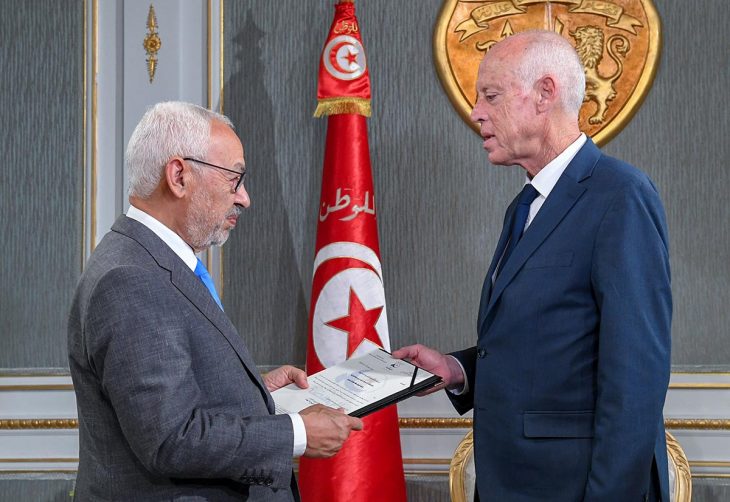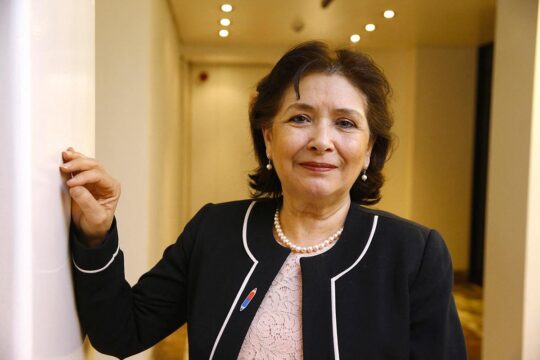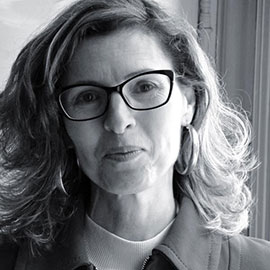Since the end of the Truth and Dignity Commission’s mandate on December 31, 2018, its members have never taken a concerted stand. But on November 17, five commissioners of this Tunisian truth commission (IVD) charged with investigating human rights violations and financial embezzlement committed between 1955 and 2013, published an open letter to parliamentary president and head of the Ennahdha party (Islamist) Rached Ghannouchi. "The denial of justice to the victims of despotism can only fuel the cycle of violence," says the letter which comes in response to remarks by Ghannouchi in a November 8 television interview.
In this interview Ghannouchi, 79, talks at length about the theme of political consensus, which "has made Tunisia the exception of the Arab Spring". Then Ennahda’s historic leader – under attack from some of his most loyal companions for plans to revise party rules and run for a third term -- goes on to "global national reconciliation", another favourite theme of his, and "the rejection of exclusion". "Tunisians have not endured the same degree of violations as in Chile or South Africa, and yet these countries have been able to quickly treat the wounds of the past and project themselves into the future," he said, "hence the need to close this issue once and for all with the implementation of a new law" on transitional justice. Only 10% of accused persons have answered the summons of the specialized chambers that are to try them, but Ghannouchi complains the defendants are being "dragged from one court to another".
Truth Commissioners respond
The president of parliament confirmed his intention to appoint Mohamed Ghariani - the last secretary general of ousted former president Ben Ali’s RCD party - as advisor in charge of reconciliation and the completion of the transitional justice file. "I chose him for the symbolic dimension of this process, anticipating reconciliation," he said. "Ghariani has made amends and hails from the last party that ruled Tunisia," he continued, amid laughter affecting even the journalist questioning him. Ghariani has never made a public apology. According to the IVD report, he was part, alongside senior security officials, of the crisis and monitoring unit established at the Ministry of Interior during the fateful days of 9 to 12 January 2011, when the use of force against peaceful demonstrators resulted in several deaths and serious injuries.
On television, Ghannouchi directly attacked the IVD, accusing it of having done a poor job. In their open letter, the five commissioners replied: "You consider as an indication of 'failure' our decision to charge 923 people accused of murder, 428 accused of rape and torture, 9 accused of violations of individual freedom and 66 accused of embezzling Tunisian public funds -- crimes that remained unpunished prior to the Revolution." And they hammered home the message: "What shocked us most is that you attack the Truth and Dignity Commission for having brought 1,426 defendants before the specialized chambers to bring justice for 29,950 victims based on evidence obtained in investigations, hearings of victims, defendants and witnesses who responded to the IVD summons in accordance with the provisions of the law.”
"We all know Rached Ghannouchi's position on global reconciliation,” former IVD president Sihem Bensedrine told Justice Info. “He’s been talking about it since 2016, when he was only the leader of his party. But now he is president of parliament, which passed Article 148 of the Constitution on transitional justice. We reminded him that one of the characteristics of statesmen is respect for their institutions. We were appalled by his use of language on media inherited from the dictatorship to demean us, such as referring to the IVD as the ‘Bensedrine Commission’.”
The day the open letter appeared, 15 human rights and victims’ groups forming the Coalition for Transitional Justice issued a communiqué denouncing Ghannouchi's statements that he plans to definitively close the transitional justice file.
Four bills on reconciliation
For many transitional justice advocates, the historic Ennahdha leader’s interview is the last straw. Since the start of the parliamentary session in September, several parties have embarked on a "race for reconciliation". Even the country’s president Kaies Saied, a jurist and constitutionalist known for his anti-system and anti-party positions, has discreetly shown himself to be part of this dynamic.
Four bills on reconciliation, a rather elastic theme, especially for politicians, are ready. Two have been made public. The first one, in September, comes from Abir Moussi, president of the Free Destinian Party, close to the former regime. The second one, in October, is a draft bill authored by the president, Kaies Saied. The two others, one belonging to the Al Karama Coalition, a party allied to the Islamist movement although situated on its right, and the other to Ennahda are probably waiting for the right moment to come out into the open.
"The people want their stolen money back"
The president's draft targets only businessmen of the former regime against whom allegations of embezzlement are currently being examined by the specialized chambers, the economic and financial judiciary, or sometimes both. He proposes to conclude a settlement with the alleged perpetrators through mediation or, more simply, a financial reconciliation. "Each convicted person must commit to carrying out the projects demanded by inhabitants under the supervision of a regional commission for monitoring and coordination. The final reconciliation is only concluded when the person concerned presents necessary proof of the projects he has carried out," said a communiqué from the presidency last March in response to controversy over the President's announcement and claims he wants to confiscate businessmen’s assets.
"The president's initiative fits well with his slogan ‘the people demand’,” says Nessrine Jelalia, director of the pro-transitional justice NGO Bawssala (Compass). “The people also want looted money back. The idea is not bad; it promises to reinvest the embezzled money and distribute it fairly in development projects in the most marginalized regions, whose lot has not improved since the revolution. But it’s an administrative and extrajudicial procedure, which deprives us of knowing the truth about Mafia practices.”
A jurist for an international organization who asked not to be named told Justice Info this bill does not fit transitional justice at all, because "it does not provide guarantees of non-repetition of financial embezzlement, or reform of institutions, or restoration of trust in the justice system, from which emblematic cases would be taken if the president gets his wish.”
Political calculations
In a context where, ten years after the revolution, the situation of victims is deteriorating day by day, activists involved in the transitional justice process are outraged by the government’s passivity. Despite numerous promises to victims' associations, Prime Minister Hichem Mechichi still has not activated the Dignity Fund for victim reparations or officially installed the commission in charge of preparing implementation of the IVD's recommendations. This illustrates Mechichi's proximity to the Kalb Tounes (Heart of Tunisia) party, hostile to the work of the truth commission, and to the Ennahdha movement which, in the words of Nessrine Jelalia, "has long since sold out transitional justice to other interests".
The calculation is political. A comprehensive reconciliation with Mohamed Ghariani, a prominent member of the former regime, could weaken Abir Moussi, who continues to climb in the polls, by stripping him of part of his base recruited from the Constitutional Democratic Rally. Ghannouchi is also using Abir Moussi's excesses to refocus his policy of restoring the old regime. The historical leader of Ennahdha thus places himself as continuing the policy of former President Béji Caied Essebsi, who died on 25 July 2019, aimed at “turning the page of the past”.
"Reconciliation" is a term that Tunisian politicians are particularly fond of for its positive connotations and the promise of a better future. But used as a political "joker", it reveals the bankruptcy of the major post-revolutionary parties. In spite of his popularity, Abir Moussi is considered an undesirable because of his excesses and a heavy past. Rached Ghannouchi has seen his movement go through an unprecedented internal crisis. And Kaied Saied does not have a parliamentary bloc.
"Ghannouchi has no interest in the trials of the specialized chambers continuing: he has so many things he might want to hide from before the revolution, when his party conspired against the state, and afterwards, when Ennahdha led the ruling troika. All these trials would tarnish his image as a charismatic leader and waste his energy in battles lost in advance. Hence his implicit choice for a settlement: financial reparations rather than truth and justice," explains Nessrine Jelalia.
And so transitional justice has once again become subject to the political changes and manoeuvrings of Tunisia's long transition.
This article was modified on 24/11/2020 in order to correct an editing error in the text, independent of the author.








